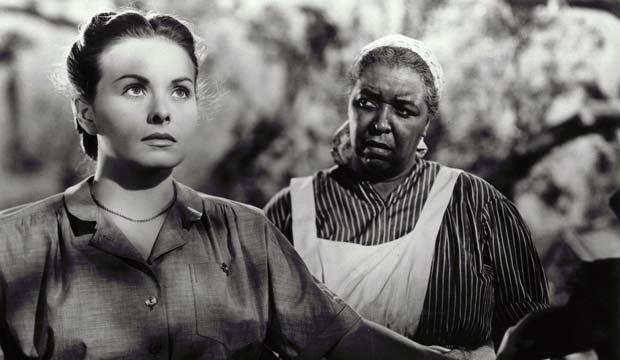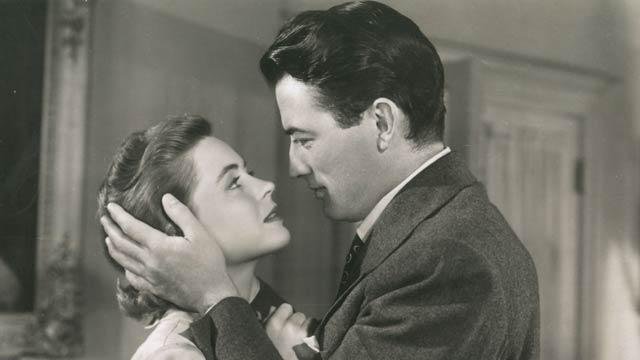Uncovering the Legacy of Elia Kazan: A Journey Through His Greatest Films
Elia Kazan is one of the most celebrated directors in the history of cinema. His films have left an indelible mark on the industry and continue to inspire audiences around the world. From socially conscious dramas to timeless classics, Kazan’s work is a testament to his incredible talent and passion for filmmaking. In this article, we will take a journey through his greatest films, exploring the themes, characters, and stories that have made him a true legend of the silver screen. Join us as we uncover the legacy of Elia Kazan and discover the magic of his unforgettable movies.
Elia Kazan is one of the most celebrated directors in the history of cinema. His films have left an indelible mark on the industry and continue to inspire audiences around the world. From socially conscious dramas to timeless classics, Kazan’s work is a testament to his incredible talent and passion for filmmaking. In this article, we will take a journey through his greatest films, exploring the themes, characters, and stories that have made him a true legend of the silver screen. Join us as we uncover the legacy of Elia Kazan and discover the magic of his unforgettable movies.

Introduction to Elia Kazan and his films
Elia Kazan was a prominent American director, producer, screenwriter and actor of Greek descent, who gained immense popularity in the 1950s and 1960s. Kazan was known for his distinct style of filmmaking that blended realism and theatricality. He was also known for discovering and nurturing the talents of many great actors like Marlon Brando, James Dean, and Eva Marie Saint. Some of his most notable films include “On the Waterfront”, “A Streetcar Named Desire”, and “East of Eden”. Kazan’s films often dealt with social issues and human relationships, and were known for their raw emotional power. He received numerous awards throughout his career, including several Academy Awards and Golden Globes.
Early life and career of Elia Kazan
Elia Kazan was born on September 7, 1909, in Constantinople, which is now known as Istanbul. His family immigrated to the United States when he was four years old and settled in New York City. Kazan studied drama at Yale University and became a member of the Group Theatre in the 1930s. He went on to direct several acclaimed stage productions before making his directorial debut in film with “A Tree Grows in Brooklyn” in 19 Kazan went on to direct some of the most iconic films of the 1950s, including “On the Waterfront” and “East of Eden.” Despite his success as a director, Kazan was also a controversial figure due to his testimony before the House Un-American Activities Committee during the Red Scare.
The themes and style of Elia Kazan’s films
Elia Kazan was a renowned film director who is known for his remarkable contribution to the world of cinema. His films often dealt with social and political issues of his time, including race relations, class struggles, and the American dream. Kazan’s style was marked by his use of realistic settings, naturalistic dialogue, and a focus on character development. His films often featured complex, flawed characters who struggled to navigate the complexities of the world around them. Kazan’s films were also known for their use of powerful performances, particularly from actors like Marlon Brando and James Dean, who brought a raw intensity to their roles. Overall, Kazan’s films remain some of the most thought-provoking and influential works in the history of cinema.

A Streetcar Named Desire (1951) – Plot and analysis
“A Streetcar Named Desire” (1951) is a masterpiece directed by Elia Kazan, based on Tennessee Williams’ play of the same name. The story follows Blanche DuBois, a fading Southern belle who visits her sister and brother-in-law in New Orleans. Blanche’s fragile mental state clashes with her brother-in-law Stanley Kowalski, a brutish and aggressive man who represents the harsh realities of life. The film explores themes such as desire, illusion, and the struggle for power, and features outstanding performances by Vivien Leigh as Blanche, Marlon Brando as Stanley, and Kim Hunter as Stella. Kazan’s direction and the film’s evocative cinematography capture the heat and intensity of the story, making “A Streetcar Named Desire” a timeless classic of American cinema.
On the Waterfront (1954) – Plot and analysis
On the Waterfront, directed by Elia Kazan, unravels the story of Terry Malloy, a washed-up boxer who finds himself tangled up in the corrupt dealings of the New Jersey longshoremen’s union. As Terry becomes entangled in the mob’s web of deceit, he finds himself struggling between his loyalty to his union and his conscience. The film tackles themes of betrayal, morality, and redemption, all while showcasing the incredible acting talents of Marlon Brando, who delivers a captivating performance as Terry. On the Waterfront is considered a cinematic masterpiece and a must-see for any lover of classic films.
East of Eden (1955) – Plot and analysis
“East of Eden” is a 1955 film directed by Elia Kazan, based on the novel by John Steinbeck. The film tells the story of two brothers, Cal and Aron Trask, and their troubled relationship with their father, Adam. The film explores themes of good versus evil, the search for identity, and the impact of family dynamics on human behavior. James Dean, in his first major role, delivers a powerful performance as Cal, the troubled and rebellious son who struggles to earn his father’s love and acceptance. Kazan’s masterful direction, combined with the captivating performances by the cast, make “East of Eden” a timeless classic that still resonates with audiences today.

Splendor in the Grass (1961) – Plot and analysis
Splendor in the Grass (1961) was directed by Elia Kazan and starred Warren Beatty and Natalie Wood. The film tells the story of two young lovers from different social classes and the challenges they face in the conservative society of the 1920s. Deanie (played by Wood) is a good girl from a wealthy family, while Bud (played by Beatty) is a wild and adventurous boy from a working-class background. The film explores themes of sexual repression, mental illness, and the pressure to conform to societal norms. Kazan’s direction, combined with Beatty and Wood‘s impressive performances, makes Splendor in the Grass a must-watch classic film.
The Last Tycoon (1976) – Plot and analysis
“The Last Tycoon” (1976) is a drama film directed by the legendary director Elia Kazan. The movie tells the story of a Hollywood producer, Monroe Stahr (Robert De Niro), who is struggling to achieve his dreams and overcome his past. The plot revolves around the struggle for power and the inner workings of the movie industry. Kazan’s direction and De Niro’s performance make this film a must-watch for cinema lovers. The movie portrays the dark side of the Hollywood dream and the price that people pay for fame and success. It’s a thought-provoking film that raises important questions about the movie industry and its impact on people’s lives.
Elia Kazan’s impact on American cinema and society
Elia Kazan was one of the most influential directors of American cinema. His films often tackled controversial and topical issues, such as racism, classism, and political corruption. Kazan’s use of naturalistic acting and attention to detail in his storytelling revolutionized American cinema and set the standard for generations to come. While some of his actions off-screen were controversial, his impact on American society cannot be denied. His films helped to open dialogues about important issues and shed light on the struggles of everyday people. Kazan’s legacy continues to be felt in the world of cinema and beyond.
Conclusion and final thoughts on Elia Kazan and his films
In conclusion, Elia Kazan was a highly influential filmmaker with a distinct style that was ahead of its time. His films tackled controversial and taboo subjects, such as racism and mental illness, and his use of naturalistic acting and cinematography helped to revolutionize the film industry. Kazan’s legacy continues to inspire new generations of filmmakers to push boundaries and challenge societal norms through their work. From A Streetcar Named Desire to On the Waterfront, Kazan’s films will always be remembered as some of the greatest and most thought-provoking works of American cinema.
For more information about Elia Kazan films, including movie details, cast information, etc..
check out the filmaffinity page.



